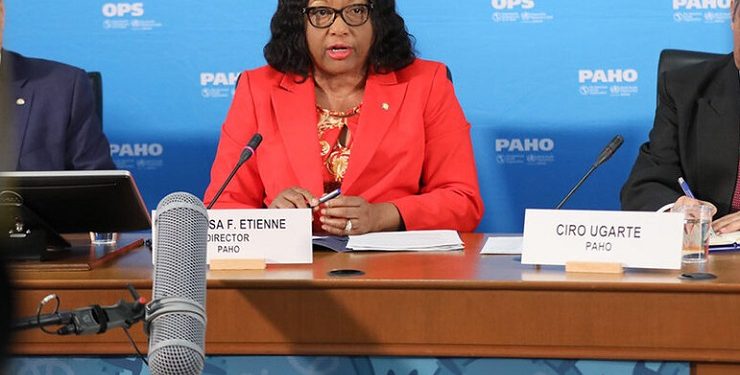WASHINGTON, United States, Thursday April 2, 2020 – With many countries in the Caribbean and the rest of the Americas now reporting community transmission of COVID-19, there is still a short window of time for governments to slow the spread of the virus, reduce the impact on health systems and save lives, says Pan American Health Organization (PAHO) Director Dr Carissa Etienne.
As has been seen in other regions of the world, cases are expected to escalate in the Region of the Americas.
Countries must take urgent action to prepare hospitals and health facilities for what is coming: an influx of COVID-19 patients that will need hospital space, beds, health professionals and medical equipment.
“This virus has not and will not be stopped by borders drawn on maps,” said Dr Etienne.
She highlighted that countries must also protect their health personnel as never before. This includes training on how to avoid infections and access to adequate supplies of protective equipment.
“It is our duty to protect them and care for them, as they will be on the frontlines of this battle,” the PAHO Director said.
Based on the experience of countries in other regions, she said “it seems prudent to plan for the implementation of measures for, at least, two to three months”.
Without solid evidence on effective treatments and no available vaccine at hand, social distancing and other aggressive preventative measures remain the best bet to prevent the most severe consequences of the COVID-19 pandemic in our region.
“This moment demands bold and compassionate leadership,” Dr Etienne said.
“It will not be easy, and we know we will be asking people to adapt to an extraordinary situation that is impacting everything in their lives. But let me emphasize: this pandemic is serious, and we need to do everything in our power to mitigate the impact of COVID-19 on our people.”
The PAHO Director highlighted the solidarity of the region and the need to continue sharing resources, expertise and joint decisions to accelerate access to health services, research and innovation.
She also emphasized that PAHO will continue to facilitate exchange between countries, and to work intensively with Member States, particularly those with the weakest health systems, to strengthen surveillance and early detection of cases and on ensuring health service preparedness.
“Solidarity in our region has never had deeper meaning than it does today. The only way out of this situation will be if everyone does his/her part, while supporting others,” Dr Etienne said.


















